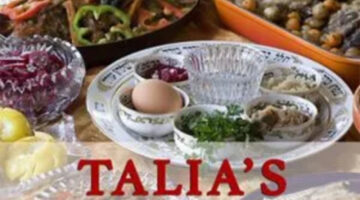Last month, an Irish architect unearthed an ancient Book of Psalms mired deep in the mud of a bog.
The 20-page, 1,200-year-old manuscript was said to be the first discovery of a medieval document in Ireland in modern times.
The book was found open to a page describing, in Latin, Psalm 83, in which God hears of other nations' attempts to wipe out the name of Israel.
I "unearthed" this information from a "blog" next to another blog that described the death of a dozen Israeli troops at the hands of terrorists in Lebanon. It appears that Psalm 83 is the theme common to both bog and blog. "Israel bashing" is as ancient as the former and as up-to-the-minute as the latter. Let me quote:
"They plot craftily against Your people and take counsel against Your treasured ones. They say, 'Let us wipe them out as a nation; Israel's name will be mentioned no more.' Unanimous in their counsel they have made an alliance against You."
Once again, we witness a lamentable league of nations unusually-united in their efforts to destroy Israel.
After examining the bog, an expert said, "It could take months of study just to identify the safest way to pry open the pages without damaging or destroying the text." But, after reading the blog, I fear it could take another millennium to identify the cause of such eternal enmity. I find myself asking what has changed in the 3,000 years representing the textual time span between the bog and blog?
Nations now, just as then, desire the destruction of the Jewish state and continue to refuse to recognize its very existence. Amidst all the rhetoric revolving around United Nations resolutions, it's helpful to remember this: Only one party in the Middle East supported the establishment of the proposed Palestinian Arab state: the Zionists! Every single Arab State opposed the United Nations resolution, which would have created an independent Palestine Arab nation. Their sole concern was that not one inch of Palestine be controlled by a Jewish state.
To quote the late, great Zionist leader Ze'ev Jabotinsky who, in his address to the Peel Commission, 10 years prior to the U.N. resolution: "This is not at all an issue about ousting the Arabs. On the contrary, the idea is that Palestine, on both sides of the Jordan should hold the Arabs, their progeny, and many, many Jews. I do not deny that, in the process, the Arabs of Palestine will necessarily become a minority there. What I do deny, emphatically, is that that is a hardship.
"One fraction, one branch of that race, and not a big one, may have to live in someone else's state. … It is quite understandable that the Arabs of Palestine would also prefer Palestine to be Arab State number 8, number 9 or number 10 … . But when the Arab claim is confronted with our Jewish demand to be saved, it is like the claims of appetite vs. the claims of starvation."
In this week's liturgical cycle [Isaiah 55:1-3], the Prophet, too, speaks of appetite. What, after all is said and done, is our appetite as Zionists? Isn't it just for a little peace on a little piece of land? Isn't it just for the piece of reassurance contained in the portion of this week's Haftorah (Isaiah 54:14-17). "You shall be safe from oppression … ruin shall not come near you. … No weapon formed against you shall succeed"?
Through time immemorial, from the most ancient bog to the very latest blog, our craving remains constant — you could label it, as our rabbis did, B"L"G. — "Ba Letzion Goel — May redemption come to Zion."
That's what we hunger for. That's what we thirst for: a bissele B"L"G; just a taste. And if not today, then tomorrow, speedily and soon, and in our time … Amen.
Rabbi Ira Samuel Grussgott is the religious leader of Congregation Kesher Israel in Center City, Philadelphia
(this article is reprinted from Philadelphia's Jewish Exponent here)









